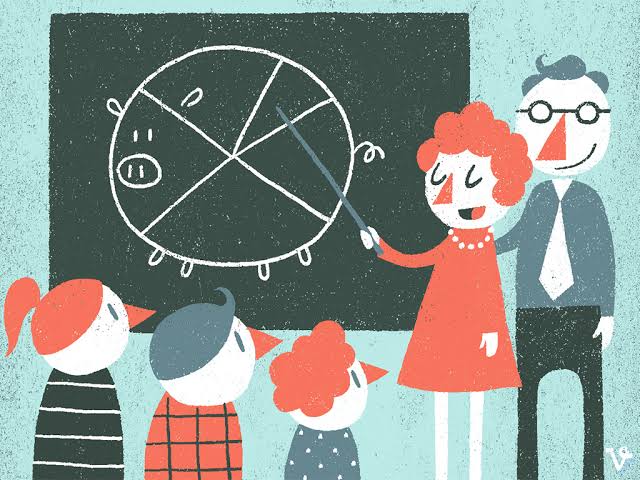
I was twelve when my father first drew a diagram of a family tree, every distant cousin, uncle, and aunt included, trying his best to familiarize me with their names. Being raised in a nuclear family meant likening seeing aforementioned relatives to a sacred pilgrimage- visiting them once a year reminded me of this whole other world that I was a reluctant part of.
The subject of wealth is a hot-button issue for most people, including me. Why can’t we ever openly discuss money? You name it, it makes me uncomfortable to discuss- salaries, the cost of a dress that was thrift shopped, monetary inheritance. In fact, most sociologists believe that the average person is more comfortable talking to friends about addiction, sex, and marital discord than money.
After my grandfather’s death, all of his property was inherited by my grandmother. Regretting the avoidance of writing a will before my granddad’s passing, she decided to write one by giving the entire responsibility to my father, the eldest amongst three sons. My family fell face-forward into the slick muck of awkwardness. “Awkward” is too casual a word to describe the suffocating tension that blanketed every family gathering thereafter.
Everyone knew about it but nobody talked about it– inconsequential small talk about academics/height/resemblances to family members long-dead and fake smiles tugging at lips tirelessly constituted every family function. I carried a quiet panic in my ribs even when left alone because I knew about the arguments and squabbles that took place simultaneously behind closed doors. And that’s where all our tiffs and spats remained because to the outside world we maintained the brittle facade of a big happy Indian family.
To me, inheritance is a triple taboo as it’s at the intersection of money, death, and family relations. Back then I couldn’t comprehend why my relatives were haggling over a tiny piece of land, because the amount of time and energy spent on it felt disproportionate and downright repulsive to me. Witnessing more greed than grief made me pity my grandpa- he left behind not loving sons and grandchildren, but dry-eyed bargain-hunters. I didn’t know how to react- I wasn’t allowed to discuss and dissect what I was witnessing. I was oblivious of the protocol on how to deal with what I was feeling– where does mourning end and inheritance begin?
I mostly stayed out of these so-called “adult affairs” as was expected of me; however, the unfortunate truth is that my parents should be able to talk to me about these taboo subjects, otherwise we would just be repeating the same cycle of mistakes my grandparents made. Not talking about the things that actually matter, like grief, loneliness, and the feeling of being lost after losing a loved one only furthers the distance between relatives and increases a sense of isolation. Now that I understand those feelings, I plucked up the courage to ask my parents, “What went down with grandpa’s money?”
I only get short, maddeningly inconclusive answers.
Some days, when the memories of the tension that drained my family of its joy feel too vivid, I try to raise the topic with my parents. I joke about pushing my queries till they remove me from their own will out of annoyance, and they laugh easily, no real answer forthcoming.
Nevertheless, at least their laughter gets me one step closer to an open conversation.
Written by Ananya Rudra for MTTN
Edited by Mihika Antonia Dean for MTTN
Featured Image by VIGG (Illustration)
Artwork by www.saga.co.uk

Leave a Reply
You must be logged in to post a comment.